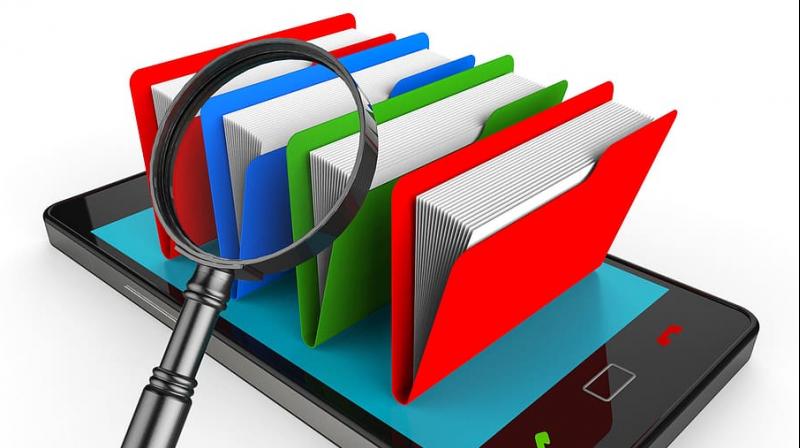Privacy may be the loser as governments rely on tech in combat against coronavirus

Collected
In Europe, officials, doctors and engineers are considering how smartphones could possibly be enlisted in the war against the pass on of the new coronavirus.
One clear attraction for wellbeing officials is the likelihood of using smartphones to learn with whom someone identified as having COVID-19 has been in contact.
But can this be achieved without intrusive surveillance and access to our devices that store a wealth of private information?
Anonymised and aggregated
Firms can “anonymise” location info received from your own smartphone by stripping out personal identifiers. It can then be presented within an “aggregate” form where specific and identifiable data points aren't accessable.
Your location data has already been likely getting used that way by cellular operators to feed traffic facts to map apps.
Such data has already been being provided by mobile operators to governments everywhere.
Google, which collects large amounts of info from users of its myriad companies, plans to publish information about the movement of men and women to permit governments to gauge the effectiveness of physical distancing measures.
In particular, it will display percentage point increases and decreases in visits to such places as parks, shops, and workplaces.
Bluetooth sleuth
Anonymised and aggregated only get you so far. To get practical data just like the people with whom an infected person has had contact, you must get invasive. Or do you?
Singapore pioneered a method using Bluetooth.
If you’ve ever connected a pair to your phone in a public place you’ll probably have noticed the devices of others nearby.
It really is this feature of Bluetooth that the Singaporean iphone app TraceTogether exploits.
Anyone who has downloaded the application and kept their Bluetooth enabled will get started to join up codes from all persons who have the application on the phone and come within range.
Germany is looking at rolling out an identical system.
Privacy concerns
The Singaporean app was created to reduce privacy concerns.
For one, the iphone app is voluntary.
Another is that it doesn’t track where you are, rather it just collects codes from the phones of folks with whom you come into relatively close contact.
That information is only uploaded to the operator of the iphone app whenever a person declares himself or herself as having drop with COVID-19.
The TraceTogether iphone app then matches up the codes (non-identifiable except to the operator of the machine) with the telephone number of owners, and messages them that they had been in connection with someone who has been identified as having COVID-19.
‘Proportionate and temporary’-
Putting the fox in charge of guarding the henhouse is unlikely to sit well with rights and privacy groups, although they don’t exclude the application of technology to greatly help combat the crisis.
“However, States’ efforts to support the virus should not be used as a cover to usher in a fresh era of greatly expanded systems of invasive digital surveillance,” said a statement issued Thursday by 100 rights groups including Amnesty International, Privacy International and Human Rights Watch.
They said any additional digital surveillance powers ought to be necessary, proportionate and temporary.
Source: https://www.deccanchronicle.com
Tags :
Previous Story
- CamScanner is now obtainable in 4 regional languages
- Udacity launches new Intro to Machine Learning with...
- Sorry Apple, Google Made 2019’s Most Important Phone
- As Alphabet CEO, Sundar Pichai becomes sole target...
- EU antitrust regulators say they are investigating Google's...
- Now, WhatsApp Beta can automatically delete your messages
- A Unesco-listed stay: exploring South Korea's temples
- Google bars elections ads from using political leanings,...